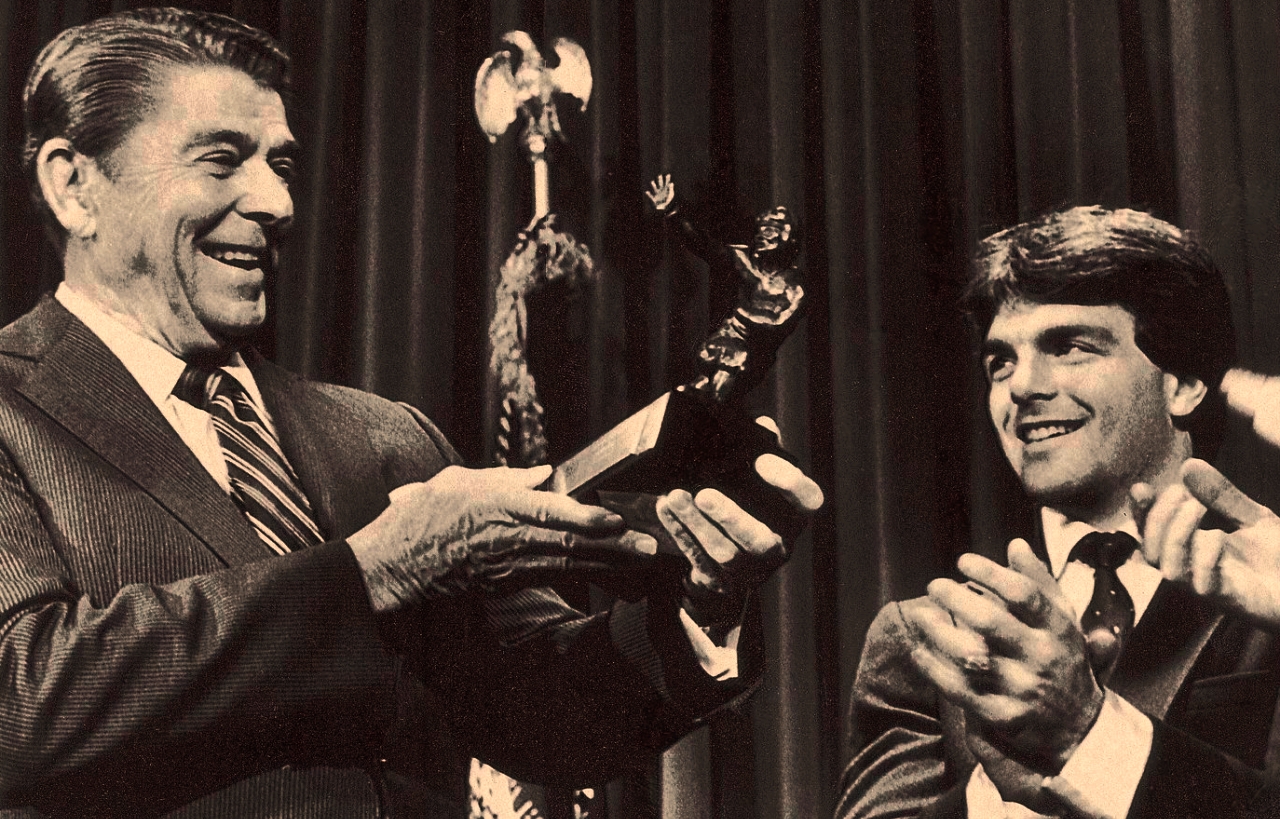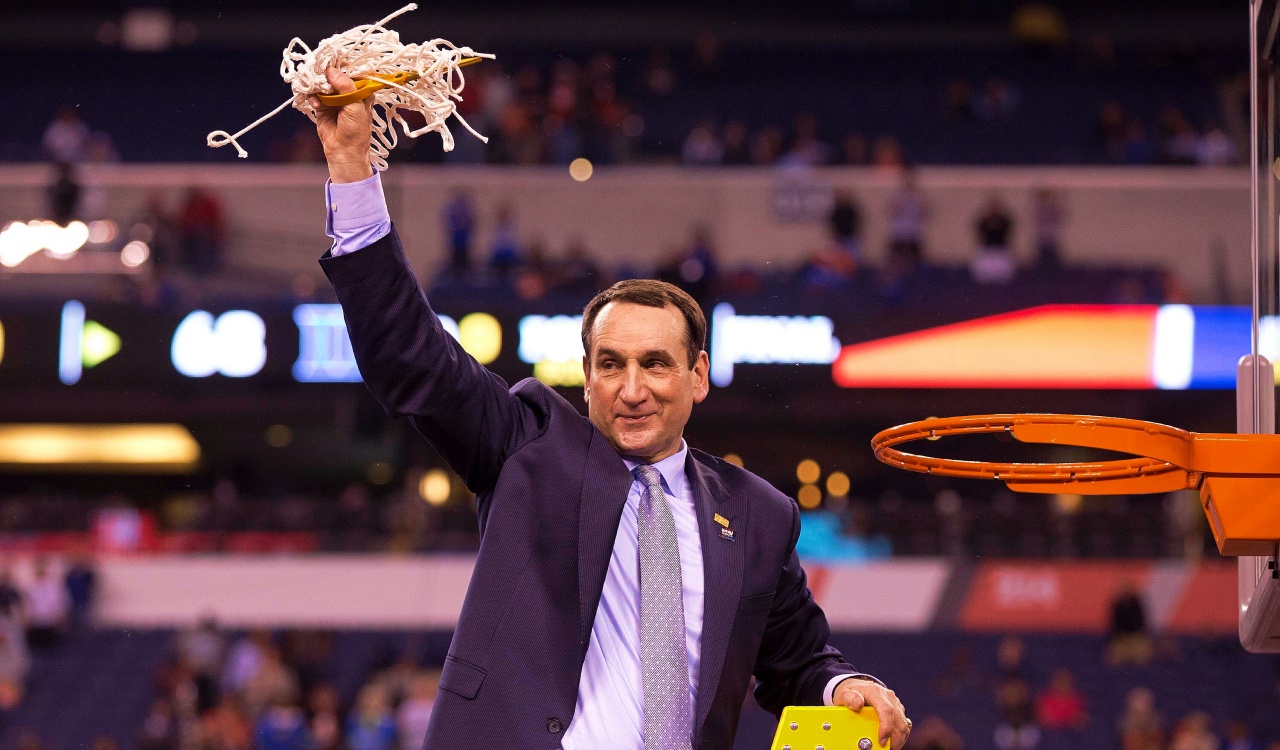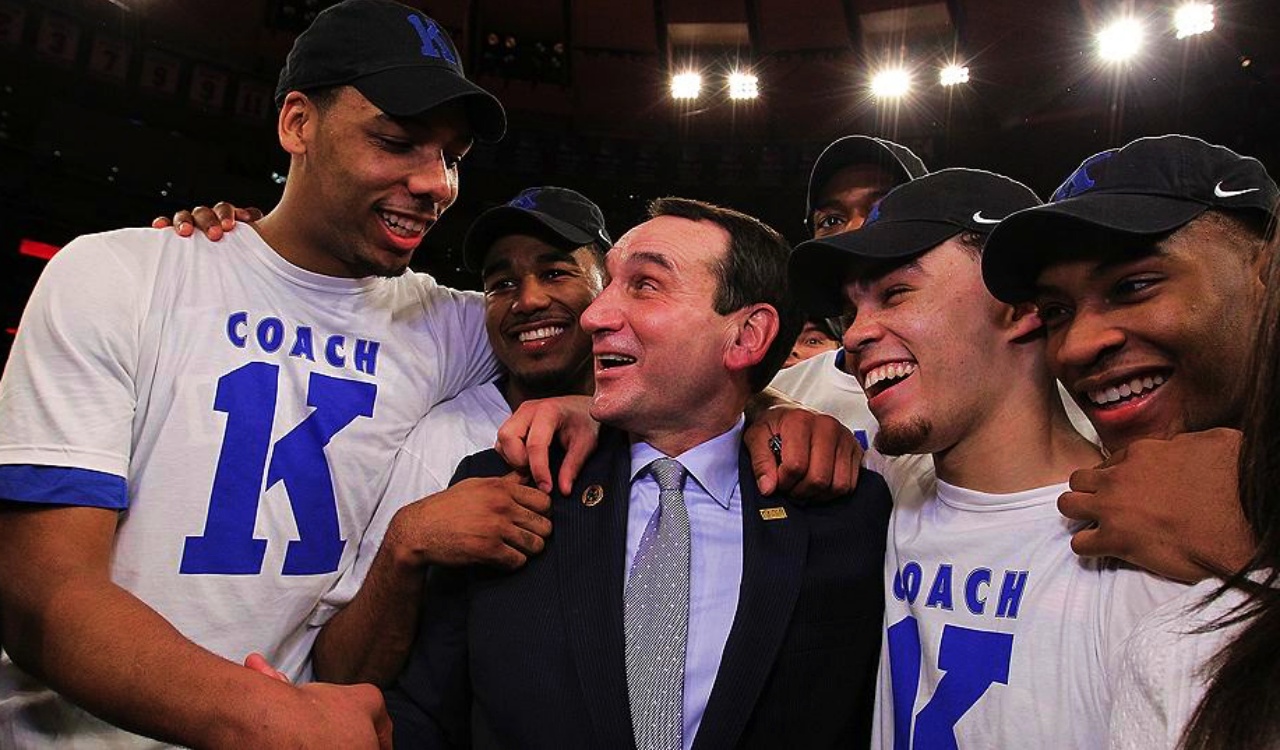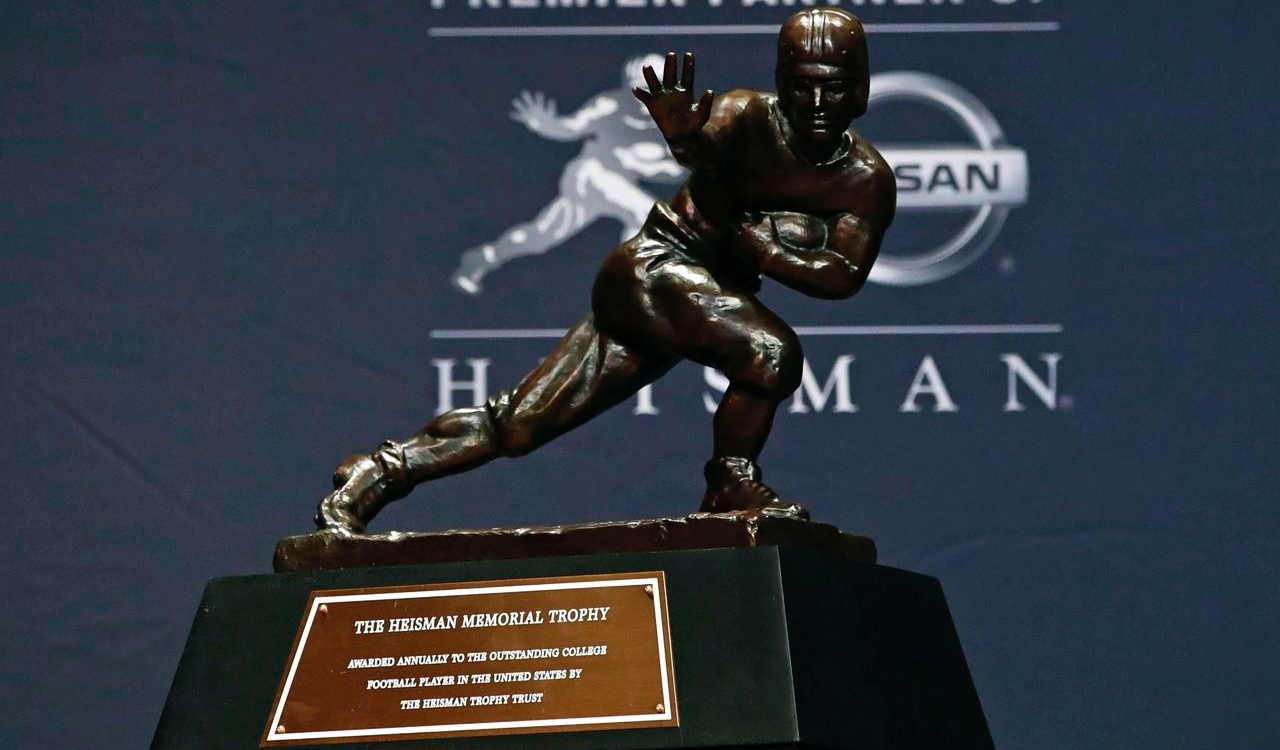In the 1980s, four new bowl games added to the schedule. This brought the total up to 19 bowl games by the end of the decade. The University of Miami AKA “The U” won three NCAA titles in the decade, while Penn State captured two. The Heisman also became a running back trophy seemingly.
Many changes would also happen all over the world.
The outbreak of HIV/AIDS began to infect millions, with a huge impact happening in the United States. As more people contracted the disease, research went into finding both the cause and a cure. Sadly, we didn’t find out some critical information until 1990. 35 million people have died from AIDS since.
In 1986, a nuclear powerplant in Ukraine called Chernobyl exploded, blasting through a 1,000-ton roof. The explosion released around 400 times as much radiation as the atomic bomb that hit Hiroshima. The explosion killed two workers instantly and 28 after a few months. The effects, however, were long-lasting.
Deadly radiation quickly spread across Asia and Europe and affected thousands of people.
Just three months before the Chernobyl explosion, the space shuttle Challenger exploded only 73 seconds into the flight, killing all seven passengers on board. This includes a teacher from New Hampshire who would have been the first civilian in space.
On a positive note, Pacman was invented in 1980. It quickly became one of the most popular video games in the world and remains such 40 years later.
In the NFL, the Oakland Raiders won the Super Bowl in 1981 and then just three years later, they won it again as the LA Raiders. The San Francisco 49ers dynasty was in full swing. With Joe Montana, the team won three Super Bowls and ruled the decade. The scary part was that they weren’t done yet.
George Rogers

- Year: 1980
- Heisman Voting: 35.81% of votes
George Rogers led the nation in rushing in 1980 with 1,781 yards to become the first player from South Carolina to win the Heisman Trophy. He averaged six yards-per-carry and picked up 14 rushing touchdowns.
Rogers played with South Carolina for three years before winning the Heisman and he had a very successful college career. As a starting running back, he ran for over 1,000 yards in three of his four years. He finished his college career with 5,091 rushing yards, 31 rushing touchdowns, and 389 receiving yards.
On top of that, averaged 5.5 yards-per-carry throughout his entire college career.
Perhaps what was most impressive about winning the Heisman Trophy was who he beat out to get it. Rogers edged out both Hugh Green and Herschel Walker to capture the award. Both went on to be All-Pro NFL stars.
After college, he was the number one overall pick in the 1981 NFL Draft by the New Orleans Saints. He played seven seasons in the NFL and had a fair amount of success. He was a three-time Pro-Bowler, led the NFL in rushing yards and rushing touchdowns, and won a Super Bowl with the Washington Redskins.
His college number (38) is retired by South Carolina today. Finally, in 1997 he was inducted into the College Football Hall of Fame.
Andre Ware

- Year: 1989
- Heisman Voting: 38.96% of votes
In 1989, Andre Ware had one of the most legendary seasons in college football history, and it went well beyond the gridiron. Let’s backtrack.
The team was suspended at the end of the 1988 season due to violating NCAA rules. This meant that for the upcoming 1989 season, they were ineligible for bowl games and none of their games could be televised.
For most teams, a punishment like this means that their season is basically pointless and dead in the water. It usually takes years to recover from something like this and some teams never do. In the end, the university’s reputation is tarnished. However, the 1989 University of Houston football team defied the odds.
With Ware at the helm, the team finished with a 9-2 record and they were ranked the 14th best team in the nation. Their offense was off-the-charts and put up 60 or more points five times throughout the season.
This included a 95-21 beating over SMU, in which they had 1,021 total yards on offense.
Ware passed for 4,699 yards and became the first player from the University of Houston to win a Heisman Trophy. Ware was also the first African-American quarterback to win the award and the first player from school on probation to win the award.
Following the season, he was drafted as the seventh overall pick by the Detroit Lions. From 1990-1999 he had many stints with both NFL and CFL teams before retiring.
He is now a broadcaster for ESPN and Houston Texans’ radio. All of his great college success was rewarded when Ware was inducted into the College Football Hall of Fame in 2004.
Tim Brown

- Year: 1987
- Heisman Voting: 45.78% of votes
In 1987, Tim Brown became the seventh and most recent Heisman winner from Notre Dame to win the Heisman Trophy. He was also the second wide receiver ever to win the award at this point.
He caught 39 passes for 846 yards and three touchdowns. This was good for 21.7 yards per catch! He also picked up another 144 yards and a touchdown on the ground.
Brown led the Fighting Irish to an 8-4 season that saw them finish as the 17th best team in the nation. This included beating the ninth-ranked Michigan Wolverines to start off the season.
With the Fighting Irish, “Touchdown Timmy” finished his college career 2,493 receiving yards, 12 receiving touchdowns, 442 rushing yards, and four rushing touchdowns.
On top of this, Brown’s career average for yards per catch was 18.2
He was drafted sixth overall in the 1988 NFL Draft by the Los Angles Raiders. He played with the Raiders until 2003, before playing his final season with the Tampa Bay Buccaneers. In his NFL career, Brown made it to nine Pro-Bowls and is part of the NFL 1990s All-Decade Team.
In 2009, he was inducted into the College Football Hall of Fame due to his incredible college career. Finally, in 2015, he was inducted into the Pro Football Hall of Fame after a stellar pro career.
Bo Jackson

- Year: 1985
- Heisman Voting: 47.90% of votes
Bo Jackson had a fantastic season with the Auburn Tigers in 1985. He rushed for 1,786 yards and 17 touchdowns while averaging 6.4 yards-per-carry. This pushed his career total of rushing yards to 4,303, which is still a school record.
In fact, no other Auburn running back has rushed for even 4,000 yards in their career.
In addition to winning the Heisman Trophy in 1985, he also won the Walter Camp Award, was named the UPI Player of the Year, and became Sporting News Player of the Year. He has even named a Consensus All-American.
Jackson went on to be drafted number one overall by the Tampa Bay Buccaneers in 1986, although he’d never play a game with the Bucs. Instead, he signed with the Kansas City Royals in the MLB. However, from 1987-1990, he played in the NFL with the Los Angeles Raiders while splitting time with his MLB club.
Bo played four seasons with the Raiders before retiring from football after making it to the Pro Bowl in 1990. He played in the MLB until 1994, however. Both careers were believed to be shortened due to a hip injury. Should he had just stuck with baseball or football, who knows what kind of career he would have had. Today, he’s still considered a legend.
Jackson is also known as “Tecmo Bo” since he was featured in the 1989 video game Tecmo Bowl video game. He has also made numerous appearances in TV shows and movies since his retirement, including The Fresh Prince of Bel-Air and The Chamber among many others.
In 1996, he was inducted into the College Football Hall of Fame to honor his incredible time on the college gridiron.
Marcus Allen

- Year: 1981
- Heisman Voting: 57.05% of votes
Marcus Allen was a playmaker from the start. As a running back for the USC Trojans, he relied on his athleticism to become one of the best college football players ever. Then in 1981, he had one of the best college football seasons ever.
He dashed for an NCAA record 2,427 rushing yards along with 22 touchdowns. This was a first, as no one before Allen had rushed for 2,000 yards in a single season. On top of this total, he also had an additional 256 yards receiving and another touchdown.
Allen’s efforts were enough for him to win the Heisman Trophy, Maxwell Award, and Walter Camp Award. He was also named the Pac-10 Player of the Year and a Consensus All-American.
Just a few months later, he was taken 10th overall in the 1982 NFL Draft by the Los Angeles Raiders. In the pros, Marcus became a six-time Pro-Bowler, NFL MVP, and led the league in rushing yards once and rushing touchdowns twice.
Following his Super Bowl XVIII victory with the Raiders, he took home the Super Bowl MVP award. Yet doing this, he made history!
He became the first player to ever win an NCAA Championship, a Heisman Trophy, a regular-season NFL MVP Award, a Super Bowl, and a Super Bowl MVP Award. Allen truly was one of the greatest ever.
Allen is a history maker for sure. Along with being the first to 2,000 yards, he’s tied for the record of most 200+ yard rushing games in a college career with 12.
Allen’s college number (33) is retired by USC and in 1999 he was inducted into the College Football Hall of Fame. Then, in 2003, he was inducted into the Pro Football Hall of Fame.
Mike Rozier

- Year: 1983
- Heisman Voting: 57.17% of votes
In 1982, Mike Rozier rushed for 1,600 yards and was a Consensus All-American. However, he finished 10th in the Heisman race that year and wanted revenge in 1983.
During the 1983 season, he certainly got it when he rushed for 2,148 yards, 28 touchdowns, and averaged 7.8 yards-per-carry.
He became the first Heisman winner out of Nebraska. Before 1983, only Marcus Allen had a better season as a runner. Along with the Heisman, Rozier won the Maxwell Award, Walter Camp Award, and the Chic Harley Award. He was also named the UPI Player of the Year and the Sporting News Player of the Year.
Rozier finished his NCAA career with 4,780 rushing yards and 49 touchdowns while averaging 7.2 yards-per-carry.
He was drafted number two overall in the 1984 NFL Supplemental Draft by the Houston Oilers. The United States Football Leauge (USFL) seemed more appealing to him, however, and he decided to play there. After the league folded in 1985, Rozier decided to go to the NFL and played for the Oilers.
In total, Rozier played eight seasons in the NFL for the Oilers and the Atlanta Falcons. He made it to the Pro Bowl two times and rushed for over 1,000 yards in 1988.
Today, Rozier lives a relatively quiet life with his wife in New Jersey. However, in 2013, he and a few family members appeared on Family Feud for an episode.
Finally, Rozier was honored for his great college football career when he was inducted into the College Football Hall of Fame in 2006.
Herschel Walker

- Year: 1982
- Heisman Voting: 61.14% of votes
Herschel Walker played great in 1982 for the University of Georgia, claiming his first Heisman Trophy after barely missing out on the award the two years prior.
In 1980, he rushed for over 1,600 yards and 15 touchdowns while averaging 5.9 yards-per-carry. Those sound like Heisman numbers, Right? Wrong. He finished third in Heisman voting that year.
In 1981, he rushed for 1,891 yards and 18 touchdowns, having an even better season. These have to be Heisman numbers, right? Wrong once again. He finished second in Heisman voting that year.
In 1982, he rushed for 1,752 yards and 16 touchdowns. The third time must have been the charm for him as he finally won the Heisman Trophy. Walker became the seventh junior to win the award by this point.
Due to having such great seasons two seasons prior, there was no need to play a fourth season at the college level. In fact, he already broke the NCAA record for rushing yards in three seasons with 5,259.
Walker was a three-time Consensus All-American and three-time SEC Player of the Year. Oh and not to mention in 1980 he won an NCAA Championship with the Bulldogs.
In the pros, he was just as great. He was a two-time Pro Bowler and rushed for a total of 8,225 yards with 61 rushing touchdowns.
Walker is considered one of the best players of all-time at the running back position. Finally, in 1999, he was inducted into the College Football Hall of Fame to honor his amazing college football career.
Barry Sanders

- Year: 1988
- Heisman Voting: 68.27% of votes
Barry Sanders was a phenomenal college back, especially in 1988. He became the first player from Oklahoma State to win a Heisman Trophy, and he did it in style.
The stocky and elusive back rushed his way to 34 NCAA records in 1988, including his single-season rushing yards record of 2,628. In addition, he rushed for 37 touchdowns that season and averaged 7.8 yards-per-carry. Neither of his two big records has been broken since.
Sanders spent his first two seasons as a Cowboy sitting behind future NFL Hall-of-Famer Thurman Thomas. He surely made the most of being mentored by one of the greats and used that to pave his own path into history.
After his Heisman-winning season in 1988, he decided to take his talents to the NFL. He was drafted third overall by the Detroit Lions and quickly became one of the best backs in the NFL.
In his 10 season NFL career, he made it to the Pro Bowl every year, was a six-time First-Team All-Pro, two-time NFL Offensive Player of the Year, and MVP. He also led the league in rushing touchdowns once and rushing yards four times.
He is part of the 1990s All-Decade Team as well as the NFL 100th Anniversary All-Time Team. On top of that, his number (20) is retired by the Lions.
Barry Sanders is considered by many to be the best running back in NFL history. Should he have stuck around longer, he may have put up rushing records none could touch.
To honor his football career, Sanders was inducted into both the College Football Hall of Fame and Pro Football Hall of Fame in 2004.
Vinny Testaverde

- Year: 1986
- Heisman Voting: 70.25% of votes
In 1986, Vinny Testaverde became the first Miami Hurricane to win the Heisman Trophy after finishing fifth the year before.
He completed 175 passes for 2,557 yards and 26 touchdowns while leading the Hurricanes to a perfect 11-0 record. This included beating number one ranked Oklahoma State by two possessions earlier in the season.
They played Penn State in the Fiesta Bowl for the NCAA Championship and just fell short losing 10-14. Even so, they were the second-best team in the nation.
In Testaverde’s first three seasons with Miami, he learned from some of the best. He sat behind future Hall-of-Fame quarterback Jim Kelly and Heisman Trophy finalist Bernie Kosar!
Vinny then went on to play in the NFL after being drafted number one overall by the Tampa Bay Buccanneers. From 1987-2007, he bounced around from team to team in the NFL while showing flashes of success. He made it to two Pro Bowls and threw for 46,223 yards and 275 touchdowns.
While he had a 20-year pro career, he did not have many starting roles sadly. However, his college football career was impressive and deserving of praise. This would happen finally, as Testaverde made it to the College Football Hall of Fame in 2013.
Doug Flutie

- Year: 1984
- Heisman Voting: 71.11% of votes
By the end of the 1984 season, Doug Flutie made history as the first player from Boston College to win the Heisman Trophy while passing for an NCAA record 10,579 career yards.
In 1983, Flutie was brilliant, finishing third in the Heisman race. He also led Boston college to a 9-3 record while finishing as the 19th best team in the nation.
During his Heisman-winning season in 1984, he passed for 3,454 yards and 27 touchdowns while averaging 8.9 yards per attempt. He also rushed for another 379 yards and three more touchdowns.
Flutie led Boston College to a 10-2 record while finishing as the fifth-best team in the nation.
Doug then went on to play professional football. He was drafted by the Los Angeles Rams but decided to start his career in the USFL like some other notable college stars. After the league folded, Flutie then spent the next 20 years playing for numerous teams in the NFL and CFL.
The bright spots of his professional career included making it to the Pro Bowl in 1998 in the NFL. In the CFL, he was a six-time All-Star, six-time Most Outstanding Player, and three-time Grey Cup Winner and MVP.
He holds CFL records for passing yards in a season with 6,619 and passing touchdowns in a season with 48. Sadly, Doug did not have a stellar NFL career.
However, he does have 14,715 passing yards and 86 passing touchdowns in his NFL career.
His college number (22) is retired by Boston College. Finally, in 2007 he was inducted into the College Football Hall of Fame. That same year, he was inducted into Canada’s Sports Hall of Fame. In fact, he was the first non-Canadian ever to be inducted.



